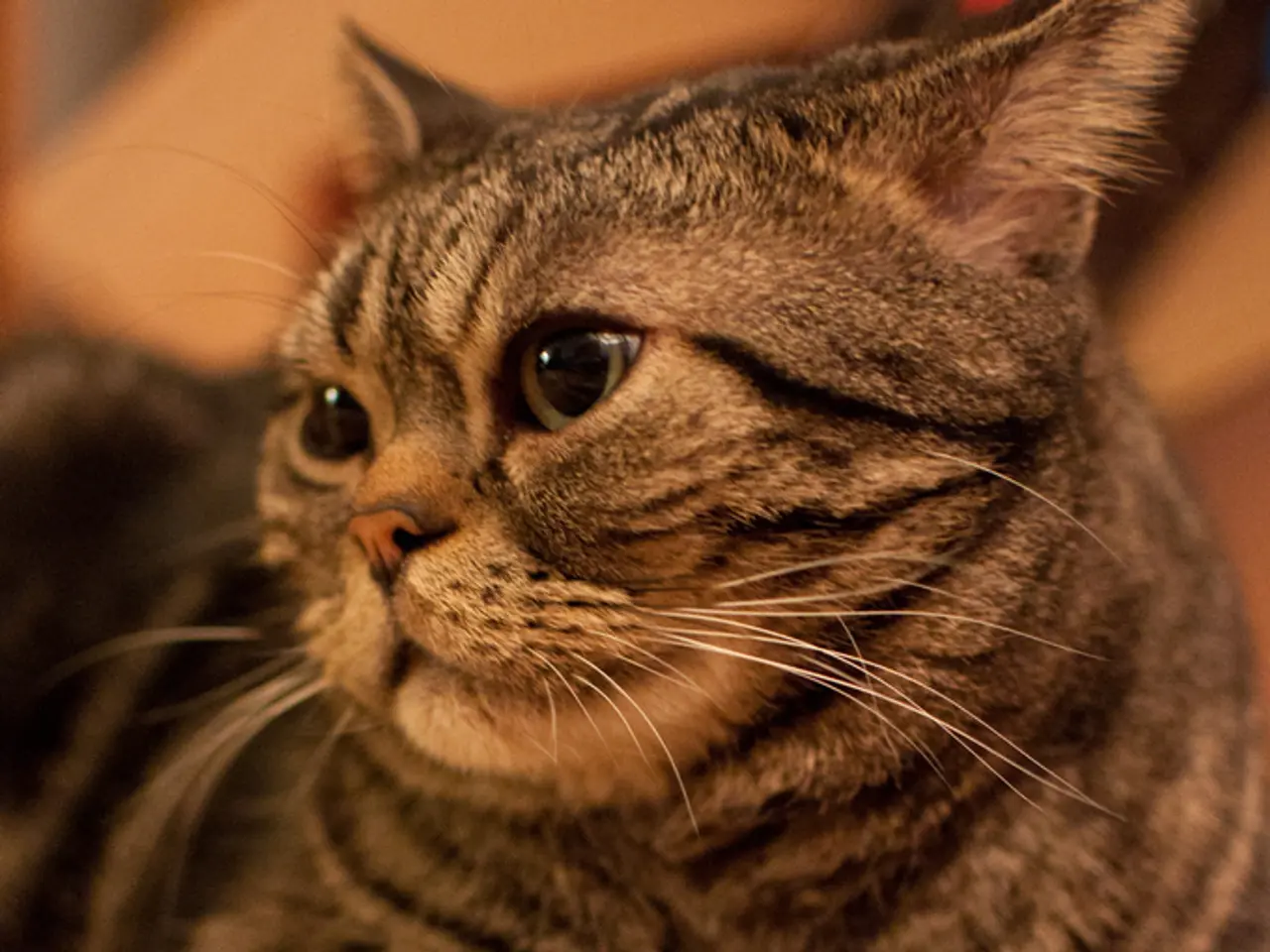Cat's Aggression: Recognized Reasons and Potential Concerns - Vet Explanation on 3 Typical Scenarios
Cats, being creatures of habit and independence, can sometimes display behaviours that may seem mysterious to their human companions. One such behaviour is growling, a sound that can range from a low guttural growl to a sharper hiss. In this article, we delve into the world of feline communication, helping you understand why your cat growls and what you can do about it.
Cats may growl due to feeling stressed, a condition that can be triggered by various factors such as territory battles, changes in the home, or anxiety. If approached while in pain, a cat may growl more intensely as a warning. It's essential to remember that growling is a warning that they're considering attacking if the behaviour continues.
If you encounter a growling cat, the first action is to back off and give them some space. Never punish a cat for growling, as they're trying to communicate their unease. Punishing them will only make them resort to attacking sooner next time.
In some cases, the reason for a cat's growling will be obvious, such as if they have a broken leg and you're trying to get them into the car. In these situations, you'll still need to work out if there's a way to do what you need to do with the least stress to your cat and take care not to get bitten.
If you can't see a reason for a cat's growling, it's time for a vet visit. Cats can hide signs of pain and be ill before being brought to the vet. Hissing, on the other hand, is usually closer to biting/scratching than growling.
To help anxious cats feel more confident in their surroundings, products like the Feliway Classic Calming Spray for Cats can be used. This product uses pheromones to help cats feel relaxed and secure. It should be sprayed onto objects 20 minutes before a cat comes into contact with them.
Another product that might help reduce anxiety in small dogs and cats is the Vetoquinol Zylkene Capsules Calming Supplement. This supplement contains alpha-casozepine, a compound found in mother's milk that helps to reduce anxiety. It's best used for several days before a stressful event.
Cats are territorial by nature and may worry about their resources when another animal or person approaches them. They may growl to protect their resources such as food, water, bed, or litter tray. If a cat is growling for a specific reason, such as the presence of a new kitten or a baby trying to climb on a cat tree, they don't necessarily need to go to the vet.
Stressed cats may exhibit other signs such as hiding, not eating properly, urinating in strange places, or overgrooming. If you notice these signs, it might be time to consider using calming products or seeking advice from a professional.
In conclusion, understanding your cat's growls can help you respond appropriately and avoid potential conflicts. Remember, every cat is unique, and some may growl more than others. If your cat seems to be growling a lot, you might find our article on how to calm an aggressive cat helpful. Always remember to approach your cat with care and patience, and consult a vet if you're unsure about the cause of their growling.
Read also:
- Nightly sweat episodes linked to GERD: Crucial insights explained
- Antitussives: List of Examples, Functions, Adverse Reactions, and Additional Details
- Asthma Diagnosis: Exploring FeNO Tests and Related Treatments
- Unfortunate Financial Disarray for a Family from California After an Expensive Emergency Room Visit with Their Burned Infant








